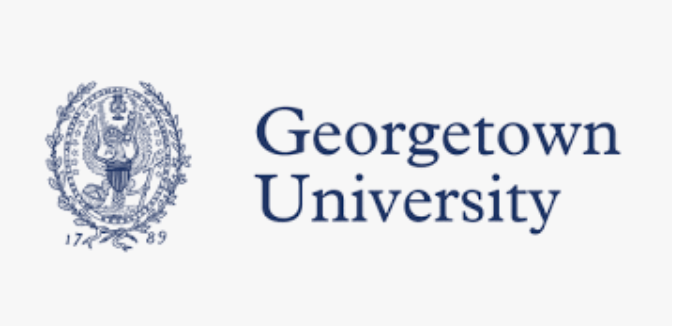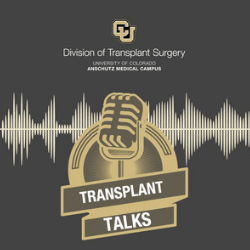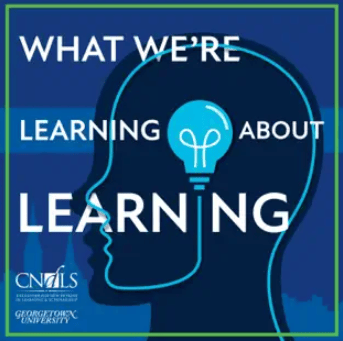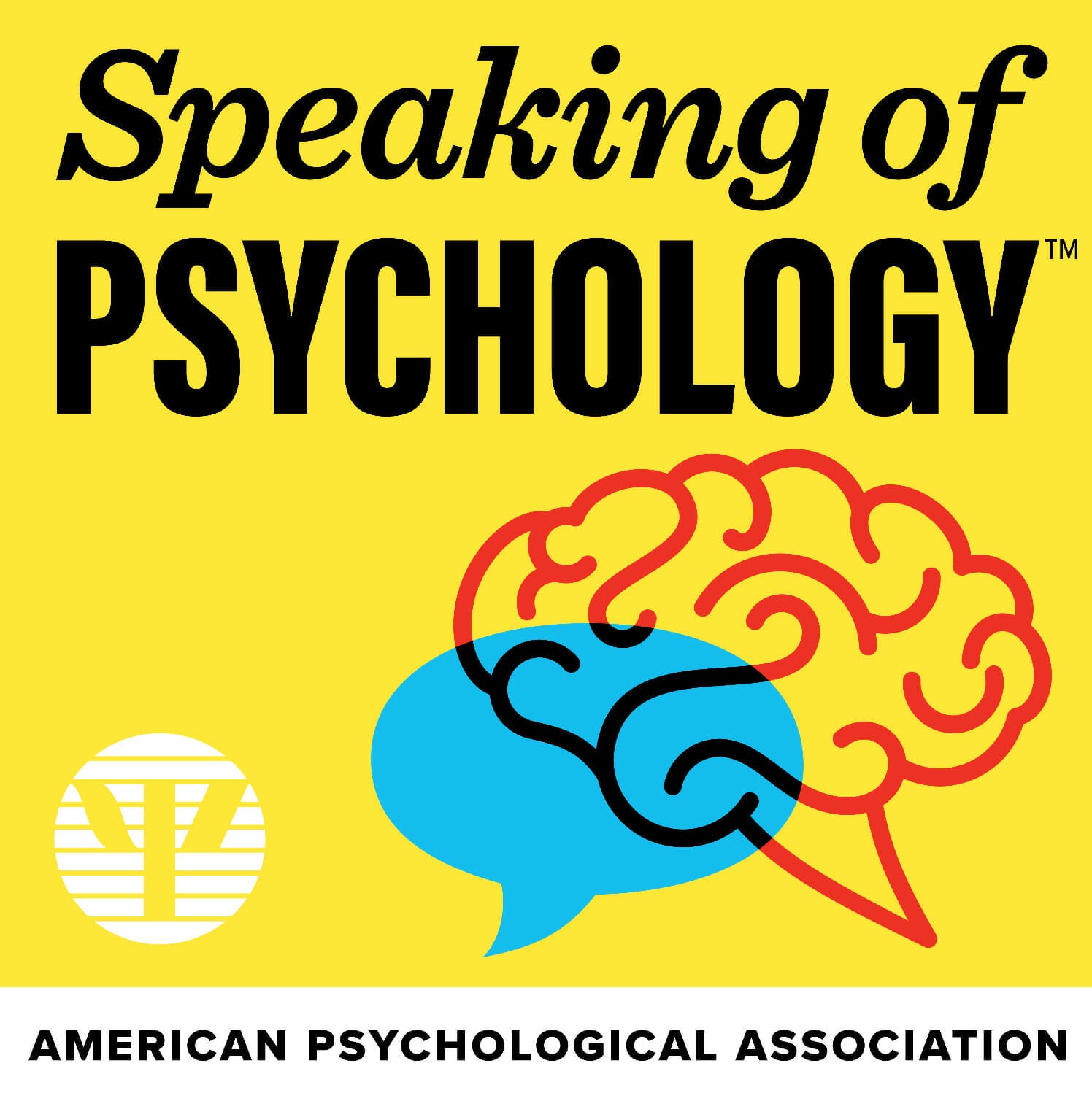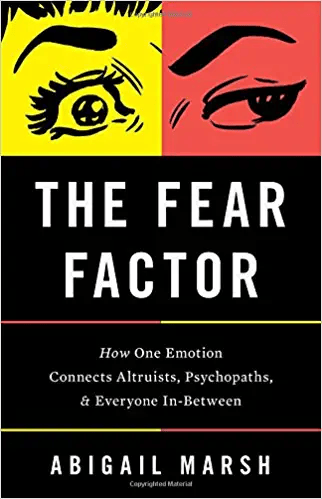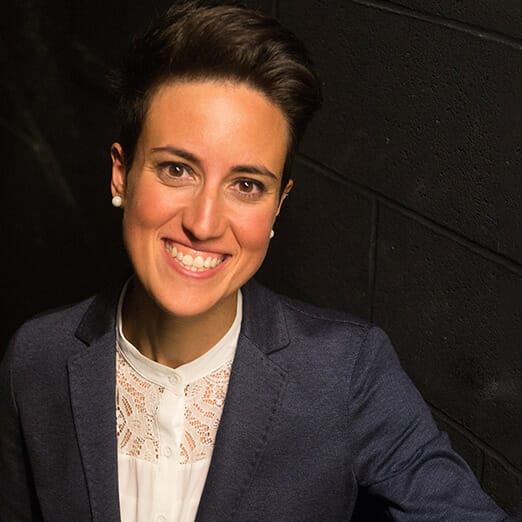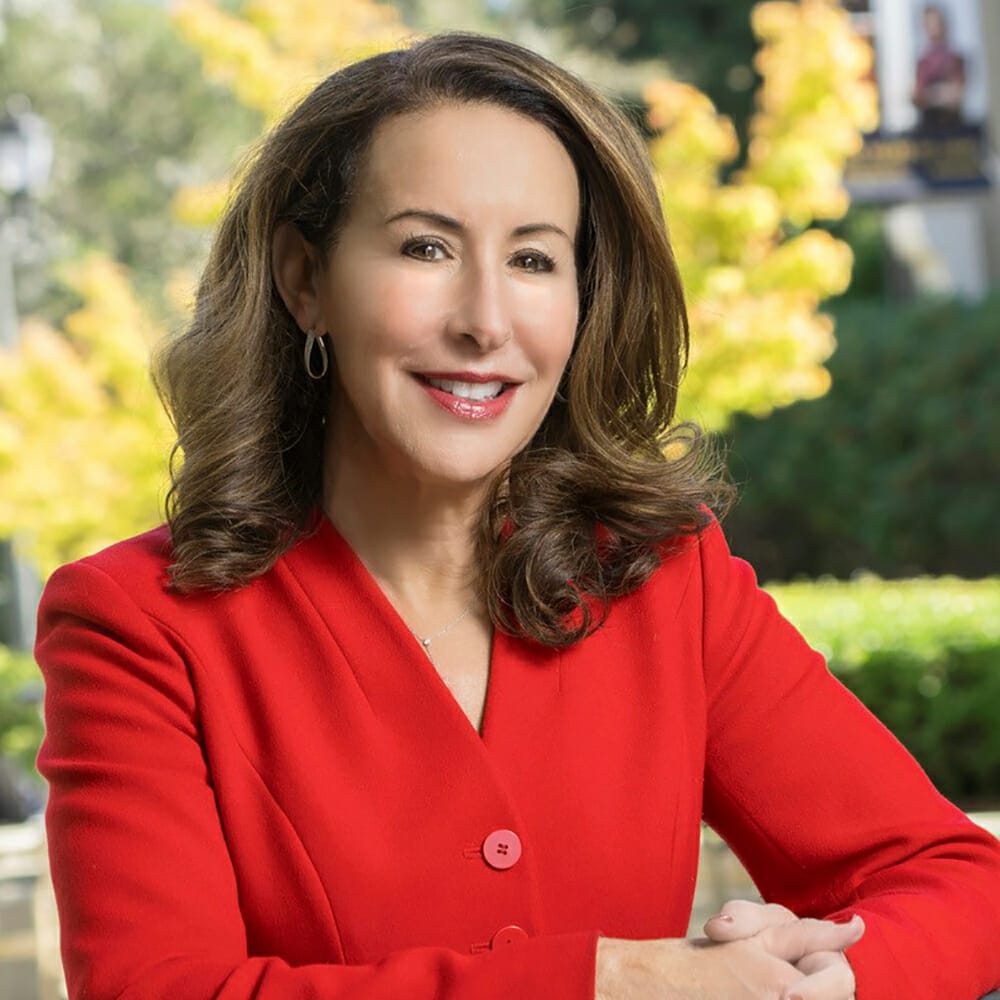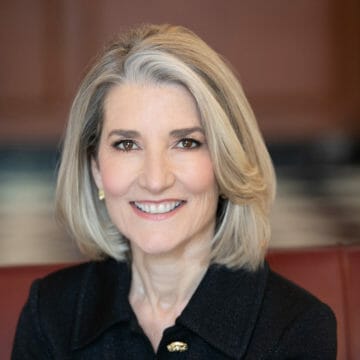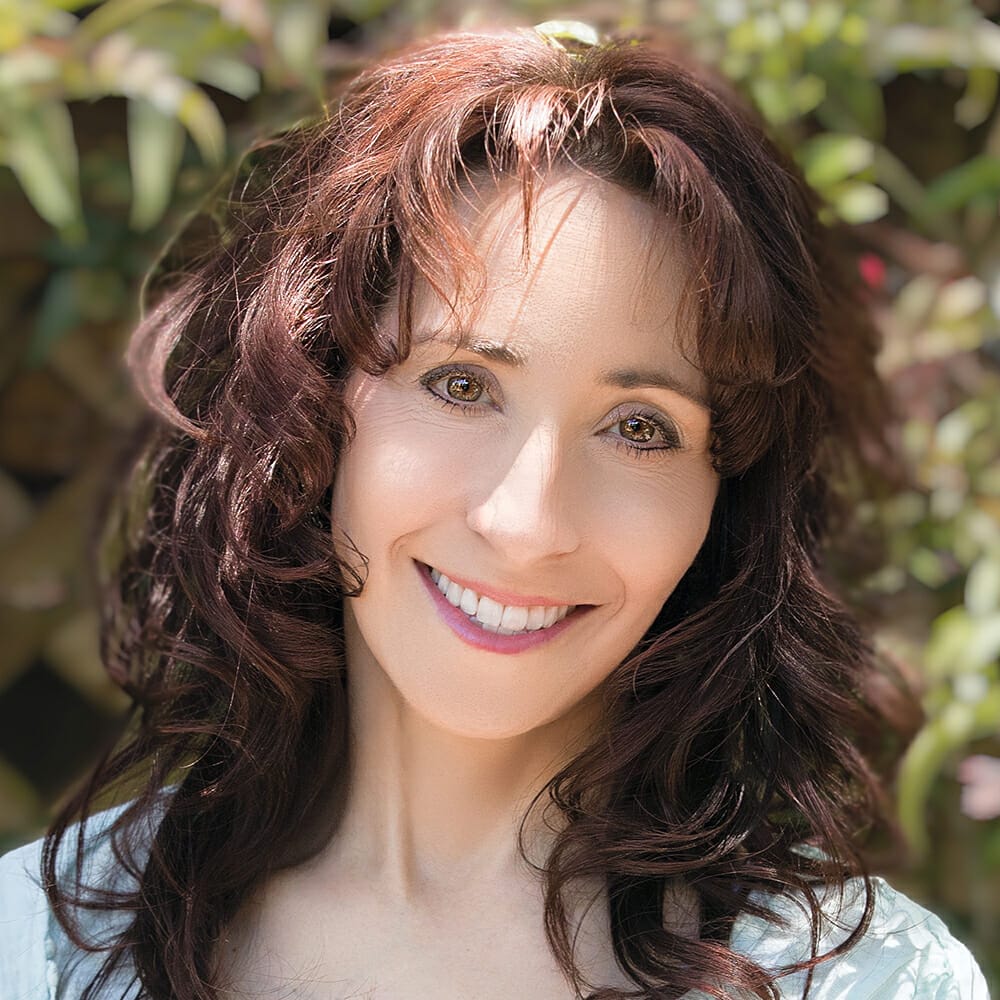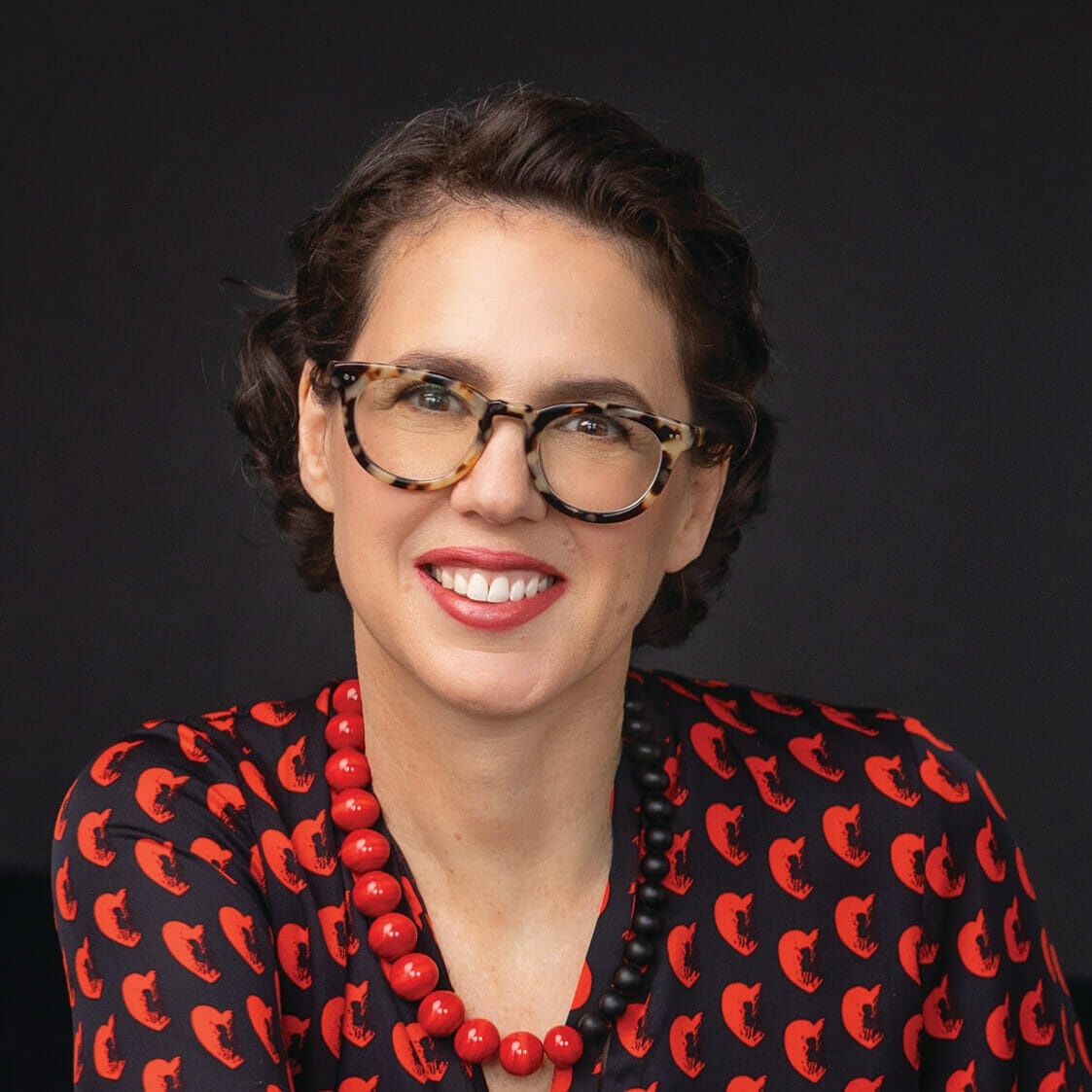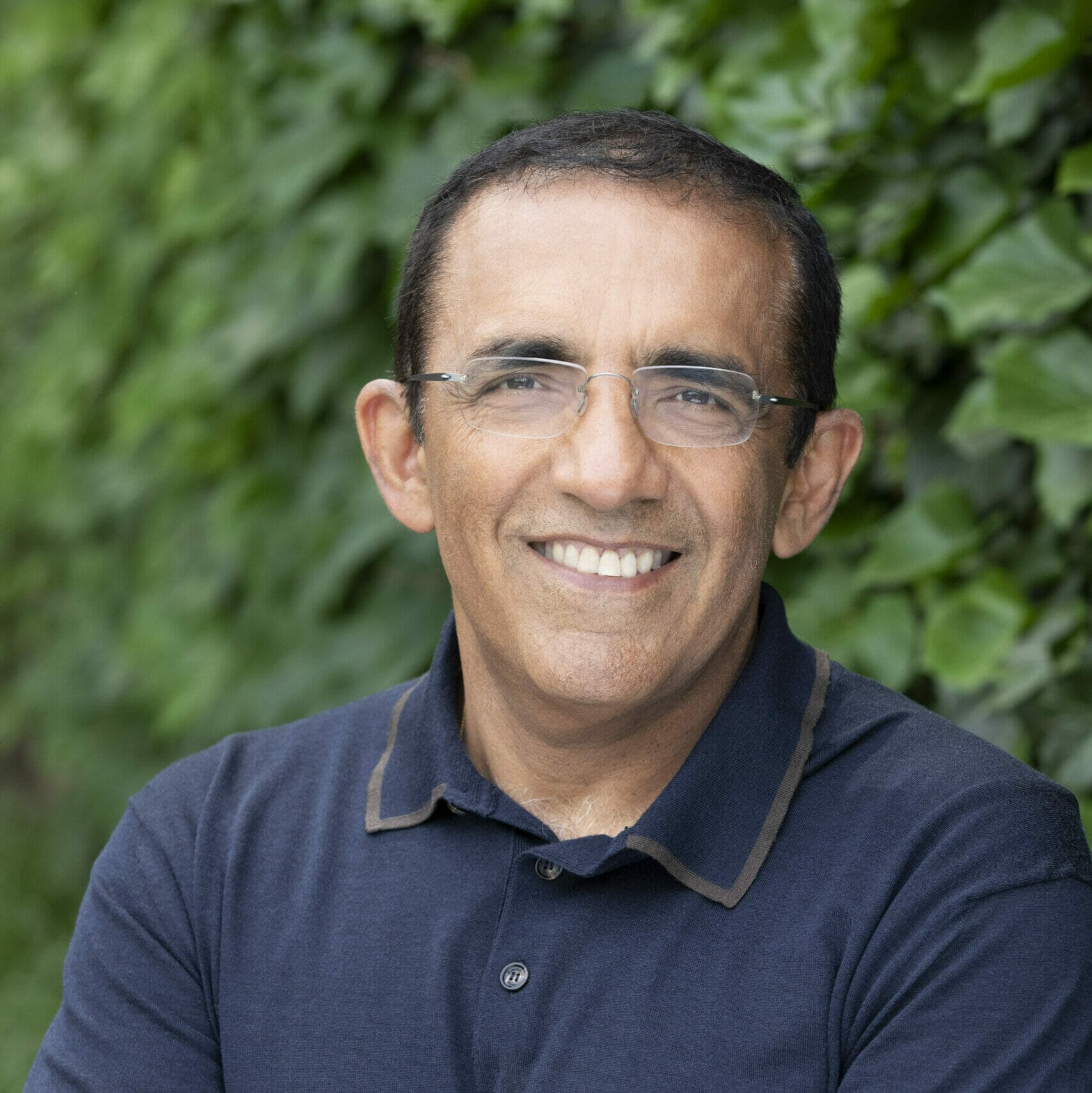Videos
Learn More About Abigail Marsh
“I learned that courage is not the absence of fear, but the triumph over it. The brave man is not he who does not feel afraid, but he who conquers that fear.” – Nelson Mandela
How do we understand what other people think and feel, and what drives us to help, rather than harm, them?
For centuries, humans have sought to understand what motivates some people to perform selfless acts – such as donating organs to strangers or helping someone escape a burning building – even at the expense of their own well-being. A pioneer in the science of altruistic behavior, top-rated Georgetown University psychology professor Abigail Marsh is uncovering what makes the desire to help other people irresistible for some but unthinkable for others. Her study of this “caring continuum” is revealing new pathways for managing fear and cultivating courage and kindness in all aspects of life.
“The capacity for both compassion and cruelty are deep-seated parts of human nature. Both are equally real and important, and both have clear biological origins,” explains Marsh, who in 2022 was recognized as the “most admired and respected” instructor at Georgetown. “Studying the brain basis of these phenomena has helped illuminate for me what it means to be human, and also how we may be able to make humans better.”
Rescued by a heroic stranger following a car accident as a teenager, Marsh channeled this experience into a groundbreaking research career exploring the biological processes that give rise to empathy. In her role as director of the Laboratory on Social and Affective Neuroscience, she’s found that individuals at the extreme ends of the spectrum – from extraordinary altruism to psychopathy – are connected by their reaction (or lack of reaction) when others are afraid. As she describes in her electrifying 2017 TED Talk, which has amassed more than two million views, this led her to a surprising discovery: humans don’t know the limits of their selfless potential to care for others – or that this potential can be increased.
Courageous Leadership: Taking Risks, Improving Cooperation and Practicing Gratitude
Accessible, real and propelled by genuine passion, Marsh’s inspiring message that heroes aren’t fearless makes bravery achievable for anyone. By highlighting hidden opportunities for cooperation and altruism, she shows teams and leaders how to increase their comfort with risk-taking, raise their ability to express gratitude and even improve their ability to turn focus outward instead of inward – all essential qualities of courageous leadership.
“Excessive self-focus is at the root of a lot of misery – rumination underlies depression and the self-consciousness associated with social anxiety,” Marsh advises. “The solution is to turn your focus away from yourself, to increase your humility. By practicing gratitude and pursuing awe-inspiring experiences, it puts your focus on other people and your connectedness to the world. This makes it easier for us to open up our minds later, helping us make sense of new or overwhelming information.”
By recommending that individuals commit to helping others when possible, Marsh reveals a path to a heightened sense of connectedness to others. Noting that people whose needs are met and who feel a sense of purpose naturally tend to be more generous, she delivers actionable advice for increasing altruistic behavior that begets more altruism, raising psychological safety and increasing collaboration. Her captivating recommendations for finding opportunities to be generous in everyday life enable anyone to better resolve conflicts, build more productive teams and improve their relationships.
Overcoming Fear, Not Eliminating It
Marsh’s decades of research into the origins of fear led her to discover that physical brain structure differences can explain why some people act heroically in terrifying situations. She details the fascinating case studies that brought her to this conclusion in her award-winning book “The Fear Factor: How One Emotion Links Altruists, Psychopaths, and Everyone In-Between” (Basic Books, 2017).
Through hundreds of interviews with heroic rescuers, organ donors and others who have successfully increased their bravery, Marsh has identified strategies to keep fear from spiraling out of control and good habits that increase comfort in scary situations. She points to common traits like honesty and humility that indicate an individual may be more willing to take risks on another’s behalf. By practicing good habits to exercise those characteristics, Marsh says, it becomes possible to close the “empathy gap” and become more courageous.
Equipped with inspiring research conclusions that, despite popular belief, humans aren’t fundamentally selfish, Marsh’s ultimate lesson is that we can better our lives and truly become courageous if we learn to help and trust each other.
“The typical person has the capacity for immense care and compassion and to trust the good intentions of people around them. Sometimes fear causes us to withhold trust, to not reach out, to not ask for help, but these are mistakes. People are generally surprised to discover how much better life goes when they make the choice to trust people.”
Abigail Marsh, Ph.D, is Professor of Psychology, Interdisciplinary Neuroscience, and Cognitive Science at Georgetown University. Director of the Laboratory on Social and Affective Neuroscience, she studies emotional processes like empathy and how they relate to altruism, aggression and psychopathy. Her findings are described in over 90 publications in journals that include Proceedings of the National Academy of Sciences, Nature Human Behaviour, American Journal of Psychiatry and JAMA Psychiatry. She describes her findings in her award-winning book “The Fear Factor” (2017). She was recognized in 2022 as the “most admired and respected” instructor at Georgetown, where she teaches courses on psychology, neuroscience and empathic communication.
A woman in STEM, Marsh has been recognized as a fellow of the Association for Psychological Science and has been awarded the Cozzarelli Prize for scientific excellence and originality from the Proceedings of the National Academy of Sciences, the S&R Kuno Award for Applied Science for the Social Good, and the Richard J. Wyatt Fellowship award for translational research from the National Institute of Mental Health (NIMH). Marsh serves on the boards of One Day Sooner and the National Kidney Donation Organization, and is the co-founder and vice-president of the non-profit mental health organization Psychopathy Is. Marsh holds a BA from Dartmouth College and a Ph.D. from Harvard University, and she conducted her post-doctoral research at NIMH.
Abigail Marsh is available to advise your organization via virtual and in-person consulting meetings, interactive workshops and customized keynotes through the exclusive representation of Stern Speakers & Advisors, a division of Stern Strategy Group®.
Leading With Care: How to Build a Pro-Social Organization
What enables people to care about and help each other, and what happens when care is missing? Being caring is not simply about empathy, says Georgetown University psychology professor Abigail Marsh, Ph.D. – it’s about giving people what they need, not just what they want. As her research shows, people who feel better will also be more pro-social. In this talk designed for leaders managing teams, Marsh illuminates the important and reciprocal relationship between helping others and well-being. She offers practical applications for building a pro-social organization and incorporating care into daily management practices. Through a psychology lens, Marsh provides strategies for giving feedback in constructive ways and mindfully experiencing the uncomfortable feelings that come with critiquing someone else. She offers organizations an avenue for strengthening individual well-being so team interactions are cooperative and supportive in service of achieving individual and organizational goals.
Fact vs. Fiction: Exposing the Myths About Human Nature
It is often thought that humans are fundamentally selfish, and people are continuing to become more self-serving and horrible over time. That line of thinking is a myth, says Georgetown University psychology professor Abigail Marsh, Ph.D. The reality is, humans aren’t fundamentally selfish because, as research shows, helping others is a self-reinforcing process that brings more joy than simply investing resources in oneself. In this eye-opening talk grounded in her cutting-edge research, Marsh distinguishes myth from fact about why humans do what they do to reveal that how we behave is way deeper than nature vs. nurture. By understanding the psychological facts about people across the spectrum, leaders are better equipped to lean in on what makes us more caring and boost capacities for altruism for a healthier, more cooperative company culture. Her enlightening recommendations for finding opportunities to be generous in everyday life enable managers at every level to better resolve conflicts, build more productive teams and improve their working relationships.
The Psychology of Fearless Innovation
Every company wants to create a safe and innovative culture, but it can feel intimidating to disrupt the status quo. As the foremost expert on the psychology of courage, Georgetown University professor and director of the Laboratory on Social and Affective Neuroscience Abigail Marsh, Ph.D., has found that few people understand their own capacity for fearlessness – and that existing capacity can be raised. Drawing from research described in her award-winning book “The Fear Factor: How One Emotion Links Altruists, Psychopaths, and Everyone In-Between” (2017), Marsh details how altruistic and heroic behavior are connected. She then suggests best practices for identifying opportunities to help others, exercises for increasing comfort with risk-taking and fear-management strategies, helping individuals become better decision-makers and feel more comfortable taking risks. Refreshingly optimistic, Marsh and her techniques for raising an organization’s global courage build a culture of fearless innovation and psychological safety.
The Biology of Heroism
Why are some people capable of acting heroically in service of others, even total strangers, while other people are not? According to Georgetown University psychology professor Abigail Marsh, Ph.D., it’s because of the way the human brain reacts to fear. As the director of the Laboratory on Social and Affective Neuroscience, Marsh performs clinical investigations into the biological processes that occur when we feel afraid. By studying people who have performed heroic deeds, she’s learned that heroes aren’t fearless at all – in fact, they feel fear more strongly than the average person. Her moving presentations show audiences techniques derived from hundreds of interviews that decrease selfish behavior, improve self-focus and increase comfort with risk-taking. By unpacking the origins of selfless behavior, Marsh delivers an uplifting reflection on the nature of courage and how anyone has the potential to be a hero.
Managing Fear: Raising an Organization’s Capacity for Courage
Natural disasters, global pandemics and social worries – there’s a lot to make people feel afraid these days. The good news, according to Georgetown University psychology professor Abigail Marsh Ph.D., is that anyone can learn to manage their fear, becoming a more courageous and kinder person in the process. Author of the award-winning book “The Fear Factor: How One Emotion Links Altruists, Psychopaths, and Everyone In-Between,” Marsh conducted hundreds of interviews with people who performed great acts of courage to discover they shared humility and honesty as key character traits, indicating how highly they value others. In this presentation, she shares tips, gratitude exercises and main points to consider when facing fearful situations. Her heartening suggestions for deliberately practicing fearful situations give teams a solid foundation of ground rules for proceeding in the face of risk, novelty, or anything that scares them. Ultimately, her strategies to keep fear from spiraling out of control, good habits for expanding the capacity for fearlessness and recommendations for restoring interconnectedness make fear work for any organization, instead of hampering it.

Ethical Reasoning Versus Empathetic Bias: A False Dichotomy?
(Trends in Cognitive Sciences, January 2024)
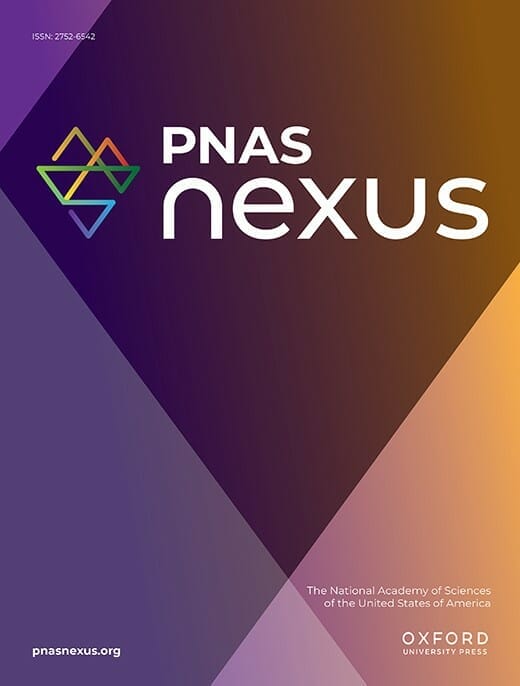
Neural Responses Underlying Extraordinary Altruists’ Generosity for Socially Distant Others
(PNAS Nexus, July 2023)
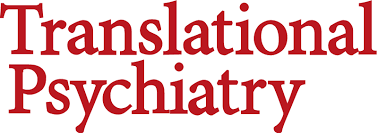
Emotion Processing in Youths with Conduct Problems: An fMRI Meta-Analysis
(Translational Psychiatry, March 2023)

Unselfish Traits and Social Decision-Making Patterns Characterize Six Populations of Real-World Extraordinary Altruists
(Nature Communications, March 2023)

Doing Good and Feeling Good: Relationships Between Altruism and Well-being for Altruists, Beneficiaries, and Observers
(World Happiness Report, 2023)
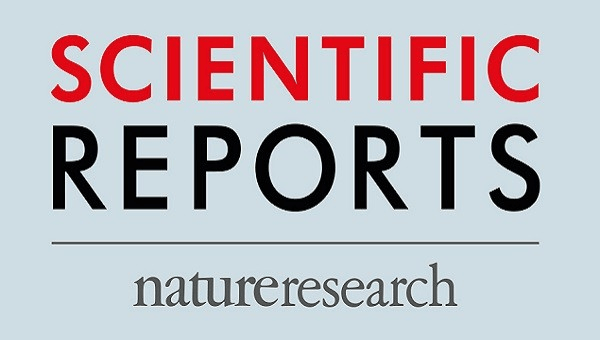
Moral Foundations, Values, and Judgments in Extraordinary Altruists
(Scientific Reports, December 2022)

Characterizing Altruistic Motivation in Potential Volunteers For SARS-CoV-2 Challenge Trials
(PLOS One, November 2022)

Beliefs about Humanity, not Higher Power, Predict Extraordinary Altruism
(Journal of Research in Personality, October 2022)

Getting Our Affect Together: Shared Representations as the Core of Empathy
(SAGE Journals, June 2022)
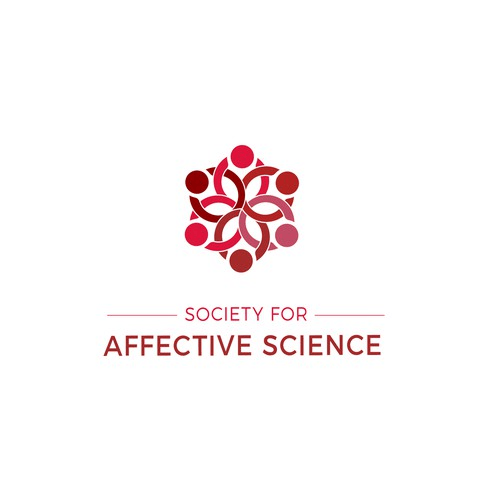
Modeling Variation in Empathic Sensitivity Using Go/No-Go Social Reinforcement Learning
(Affective Science, May 2022)

A Feature-Based Network Analysis and fMRI Meta-Analysis Reveal Three Distinct Types of Pro-Social Decisions
(Social Cognitive and Affective Neuroscience, December 2021)
Communicating with Compassionate Empathy
Can building your empathy muscles help you become more courageous person at work? Believe it or not, it can, according to top-rated Georgetown University psychology professor Abigail Marsh, Ph.D. Her research into the physical, emotional and behavioral aspects of empathy in interpersonal interactions has revealed that anyone can increase their ability to communicate more thoughtfully, creating a more empathetic work culture. In workshops for small- to medium-sized groups, Marsh brings complex neuroscience topics down to Earth, explaining the biological mechanisms behind empathy and altruism, and illustrating differences between empathy and perspective. She introduces new norms for verbal and non-verbal communication, processes for overcoming avoidance, and trust-building exercises that unlock new interconnectedness within organizations. Following the workshop, groups will find themselves fortified to persuade others, inspired to overcome ideological differences, more comfortable operating in challenging conditions and capable of making better decisions under pressure.
Praise for "The Fear Factor"
Listed as "One of the Best New Emotions Ebooks" by Book Authority
Winner of the Society for Personality and Social Psychology's book prize for "The Promotion of Social and Personality Science"
"This compelling scientific detective story spirals outward into realms that affect everyone. Best of all, [Marsh's] writing style is vivid and personable."
"'The Fear Factor' is a fascinating tour of altruism research, all the better for being sprinkled with anecdotes about Marsh's life, career and unforgettable research subjects. As well as the extremes of human nature, Marsh says plenty that is of relevance to those of us in the middle of the bell curve, including how we can strive to be more altruistic in our everyday lives."
"'Fear Factor' provides an illuminating dive into the science behind both altruism and psychopathy, promising an entertaining read for scientists and laypeople alike."
"All readers experiencing our national culture of fear, rage, and (perhaps in some cases) a rush to judgment will benefit from this examination of the importance of fear, empathy, humility, and the mysterious physiological conditions that can trigger (organically or not) the extraordinary altruist in all of us. The psychopathy stories are dark and disturbing, the altruism stories are extraordinary, and somewhere in all these shades we can find ourselves."
"Recommend this fascinating text to readers of pop psychology and true crime fans who wish to better understand the minds of potential criminals."
"Are humans basically good, or does original sin touch all of us? Should people be blamed--or praised--for behavior that is largely related to physiological differences? Is conversion even possible? How far beyond our intimate circles should our love extend? Does perfect love really cast out fear? 'The Fear Factor' could keep a church book group arguing for hours."
“A brilliant, beautiful, and important book about the things that make some of us angels, some of us devils, and all of us human. You won’t be able to put it down.”
“Let Abigail Marsh guide you on a riveting ride through your own brain. With lively writing and an impressive command of science, she shows how sensitivity to fear can be both a weapon of evil and a force for good.”
“’The Fear Factor’ reads like a thriller. Abigail Marsh takes us through the groundbreaking research that has thrown light on two of the most fundamental traits of human beings: extreme selfishness and extreme altruism. Page after page, she shows convincingly that the capacity to perceive and identify fear and, consequently, to feel empathy as one would for a child in danger, is the key factor that makes us behave as a psychopath or as someone who joyfully gives a kidney to a stranger. One of the most mind-opening books I have read in years.”
“Beautifully and engagingly written, yet not compromising on science. Abigail Marsh has written a page-turner that takes you meticulously through the scientific evidence for why altruism exists while fooling you into thinking that you are reading a detective novel. This is essential reading for anyone interested in why people vary in their capacity for empathy and love.”
“Marsh’s dynamic prose brings scientific studies and technical topics to life… Those who seek to comprehend the origin of fear, altruism, and elements of human nature will find this book a key factor in their increased understanding.”
“Though we’re all riddled with contradictions, certain principles help explain who we are. Those principles are rooted in neuro-chemical realities, not just of the human brain but also the brains of other species with which we share more than we realize. Look a little deeper, and you’ll see how we’re all connected. 'The Fear Factor' is a fine example of a book that looks deeper, showing how an ancient part of the brain— central to our emotional lives—plays a pivotal role in who we are and what we do. It’s a sharp analysis sprinkled with relatable examples, and an excellent brain book…”
“Marsh posits that we all exist somewhere along the same empathy spectrum, with psychopaths at one end and 'extreme altruists'–people who, for instance, donate a kidney to a stranger–at the other. The key, she argues is our response to another’s fear; her book is deft enough to be chilling at times, infectiously optimistic at others.”
“Abigail Marsh is a fantastic writer and a pioneering scientist in the field of neuroscience… Highly recommended to those who enjoy neuroscience, the human condition and exceptional cases of the brain going haywire.”

















